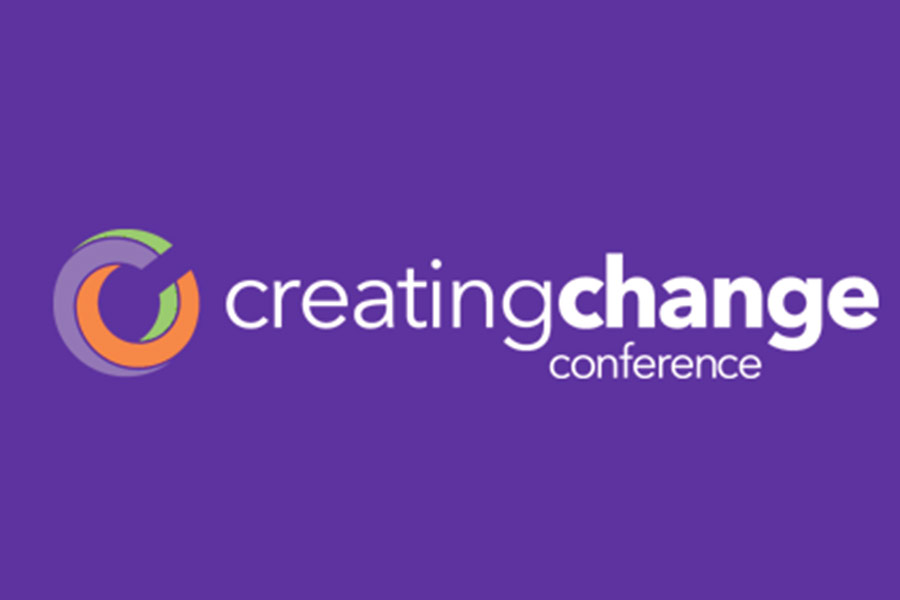Zaneta Rago-Craft started a #TalkAboutItTuesdays campaign this year on the Facebook page for the Consortium of Higher Education LGBT Resource Professionals, a group of more than 700. About 100 met Wednesday night at Creating Change, hosted this year in Chicago by The National LGBTQ Task Force.
“Part of that is posting relevant, current articles for discussion,” said Rago-Craft, director of The Center for Social Justice Education and LGBT Communities at Rutgers University. “We named it #TalkAboutItTuesdays, but really, it’s not just talking about it, it’s #BeAboutIt. We also hope that there is then action behind some of the conversations we’re trying to start.”
From the tristate area, Rago-Craft was joined by directors and assistant directors of LGBT centers at the University of Pennsylvania, which brought nine students; Penn State, which brought about 20 students; and Princeton. The resource providers will participate in a day-long higher-education institute at Creating Change Thursday.
Matt Bruno, coordinator of the LGBTQ Programming Center for Diversity and Inclusion at American University, said people shouldn’t be afraid to have difficult conversations with each other.
“Take every opportunity you have during this conference to engage in conversations that are going to push you away from your center … away from what you thought your limit was,” said Bruno, whose preferred pronoun is “they.” “That’s how we’re going to go back to each one of our campuses and make the difference that we need to make. Higher ed is always this interesting beast of an institution. Yet we are navigating it okay, some of us better than others. This is the time to figure some of that out.”
The presenters throughout the meeting emphasized concrete projects.
Chris Woods, assistant director of multicultural affairs and LGBTQ outreach at Columbia University, noted he was elected as the anti-racism chair to the higher education consortium, but the title has since changed to racial justice to broaden the scope.
Woods discussed the work to draft a letter for hiring managers “about ways in which they can consider the pipeline for queer and trans people of color in LGBTQ positions.”
“As you know, that is a harder thing to achieve in our work,” Woods said. “We need to be proactive about the ways in which we reach out.”
LB Hannahs, director of LGBT Affairs at the University of Florida, is culling recommendations about how best to leverage Title IX, which establishes gender equality in education, to benefit LGBT students.
Katherine Briggs, assistant director of the LGBT Campus Center at the University of Wisconsin in Madison, reminded the education officials to participate May 19 in the 2016 Give Out Day, a national day of giving for the LGBT community.
The consortium also awarded three of its members for their work.
Nick Sakurai, director of leadership initiatives at the LGBT Equity Center at the University of Maryland, won the outstanding social justice practice award.
Debbie Bazarsky, retiring director of the Princeton LGBT Center, won the service to the consortium award. She served nine years as liaison to Campus Pride, working to make sure the Campus Pride Index truly represented the work done by college LGBT centers. She noted at her first Creating Change conference in 1998, there were 36 LGBT professionals in higher education and this year there are 730 consortium members.
Cara Miller, coordinator of the LGBTQA Resource Center at Gallaudet University, won the promising new professional award. She’s the first coordinator of the LGBT center, which was previously run by students.
LGBT-resource providers can find more information by visiting www.lgbtcampus.org.
